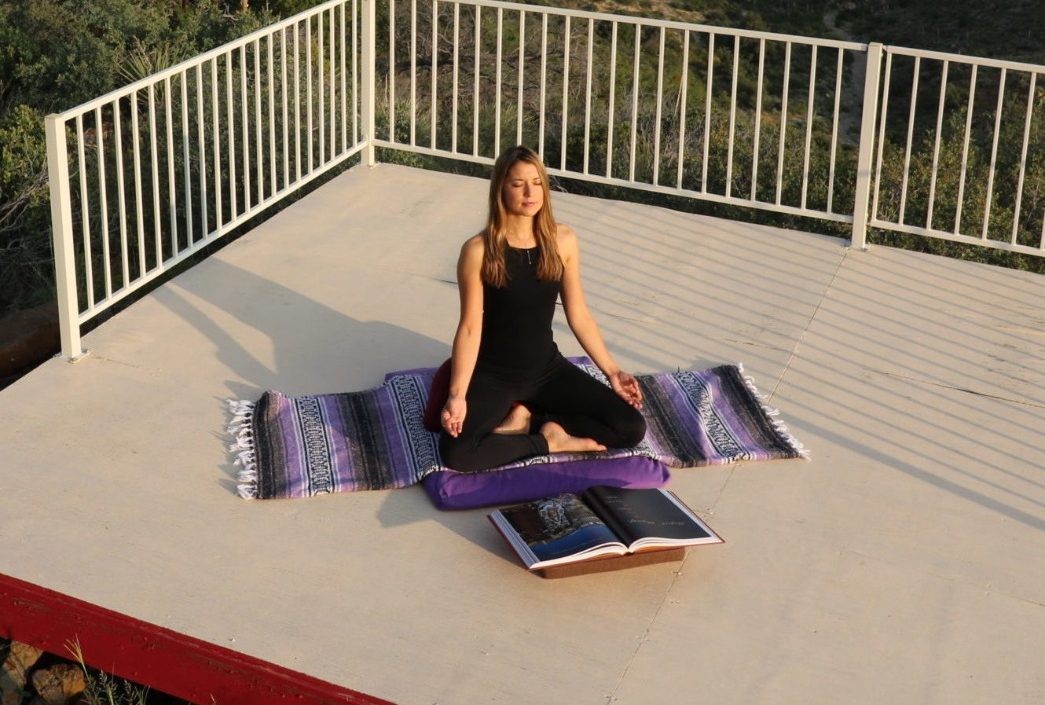Tips to Choose the Best SPIRITUAL RETREAT CENTER
You’ve meditated regularly for a while and had some great results. Now you’re ready to take your practice to the next step – you are ready to dedicate a weekend or a week or a month to uninterrupted silent meditation.
How do you choose where to go that will support this solitary, silent retreat?
Meditation is an ancient art form, a unique and creative method for self-expression developed thousands of years ago. According to the National Center for Complementary and Integrative Health, “Meditation is a mind and body practice that has a long history of use for increasing calmness and physical relaxation, improving psychological balance, coping with illness, and enhancing overall health and well-being.”
While becoming increasingly popular in the west as a method for stress relief, the original understanding of the purpose of meditation was expansive, beyond belief actually, to our modern way of thinking. These ancient goals include reaching total enlightenment, a state of being that literally reaches beyond death. Can you imagine that? A state of being that is beyond other suffering, too, such as sickness and aging? These ancient goals also include being able to help all others reach a state of total happiness. Meditation is not about just being stress-free while you and everyone you know are still getting sick, getting old (if you’re lucky), and then dying.
So it is in ancient scriptures that every detail for a successful meditation practice is revealed. And silent meditation retreats are a vital part of your success, which you need to know to not only reach your current meditation goals, but explore the potential beyond. We look now into a sutra called the Prayer of Samantabhadra from where all teachings on how to prepare for meditation are based. Taught by Lord Buddha, we are also using Je Tsongkapa’s (1357-1419) commentary from the Lam Rim Chen Mo, Steps on the Path to Enlightenment.
And we learn that there are five parts to preparing for a meditation retreat:
- How to prepare for meditation.
- The six conditions for an ideal meditation environment.
- The correct posture for meditation.
- The actual mental process during meditation.
- The object of meditation: what we meditate on.
This article will focus on part 2, the six conditions you need for your silent retreat. For his explanation of the first of these, Je Tsongkapa uses the Ornament of the Sutras (Sutralamkara in Sanskrit, or dode gyen in Tibetan), by Master Asanga, dated to about 350 AD. As his source for all six, he is using The Stages of Meditation (gomrim in Tibetan), written by Master Kamalashila around 750 AD. And an important source for the teaching on few wants and easy satisfaction, Je Tsongkapa is using the Treasure House of Higher Knowledge (Abhidharmakosha in Sanskrit), by Master Vasubandhu, written around 350 AD.

What is the the first important consideration of how to select a perfect retreat center?
- Stay in a place which is conducive to meditation, tunpay yul (Tibetan)
This seems obvious enough.
a) It should be a retreat center where things are & easy to find,& in the sense that you have all necessities without any trouble. Everything you need to be comfortable physically should be there: enough clothing, good shelter, meditation and yoga equipment, and ideally, food is prepared for you.
b) It should be a & good place, & in the sense that there are no fearful creatures such as wild animals or the like, nor any fearful people like enemies who would try to harm you. It should be a safe place.
c) It should have a & good environment, & in the sense that it is not too hot or too cold and doesn’t cause any kinds of sickness to develop in you.
d) There should be & good friends & there, in the sense that your companions in the retreat center share your sense of morality, and your world view. You will also want experienced practitioners in silent meditation retreats to be close at hand, to advise you on the finer details about how to have a successful meditation retreat.
e) The retreat center should & have goodness,& meaning that during the day, there are not many people around and during the night, it is quiet (sound is the worst distraction). Solitude and quietude should drive you into your mind, the last frontier. - Live simply; you don’t need many things, dupa chungwa (Tibetan)
The second condition is that you keep your wants few; you have no great attachment to things like fine clothes, or a lot of things. You have an attitude that you don’t need much to be satisfied. - Be satisfied with the things you have, chok shepa (Tibetan)
The third condition is that you are easily satisfied; you always feel like you have enough, even if all you have are clothes or the like that are the worst. This and the prior point are very important. Once you go into your silent retreat, let go of everything and be satisfied. Don’t think you need something more or different to have a good retreat. - Give up being too busy, ja ma pong (Tibetan)
The fourth condition is that you give up trying to do too many things. You give up actions like business; you avoid being too familiar with others; you stop practicing the normal distractions such as watching movies. Do only the minimum amount of activities as are necessary for your self-care. The retreat center should take care of your phone. - Maintain a very ethical way of life, tsultrim dakpa (Tibetan)
The fifth condition is that your morality is perfectly pure. With regard to your vows of individual freedom and your bodhisattva vows, never break down the foundation of your training: the things you have been taught that are naturally wrong to do, and those that the Buddha has prohibited. If you do commit such deeds, you are quick to regret them, and you try to make up in the proper way. This will keep your mind clear and available for meditation. Bottom line: avoid harming (inflicting physical or mental suffering on) any being. - Get rid of sense desires and desire for worldly pleasures, namtok pang (Tibetan)
This is about the things your senses are attracted to. The sixth condition is that you totally rid yourself of thoughts of desire and the rest. You can meditate on the problems of desire in this life—how it can bring you to death and to bondage. You can meditate on the problems it brings you in the life after—a birth in the realms of misery or the like. Or else meditate on how each and every one of these pretty things in the suffering cycle of life is going to end; how quickly it disappears; how surely it will be torn from me before very long.
Now, how in the world can you find a retreat center that will provide you with all this silent retreat support?
Diamond Mountain is a unique meditation center in remote southeast Arizona that was built for just this purpose. It was designed for meditation retreats and is operated while backed by these instructions and others that date back several millenia.
Two hours east of Tucson, Arizona you’ll find over 1,000 acres of quiet, remote and beautiful landscape. Isolated, eco-friendly cottages were built by long-term meditation retreaters of past, and were designed with meditation-based priorities. There are passionate retreaters and
students of the Tibetan Gelugpa lineage on-site who can help you access all the information your heart could desire regarding why and how to do long retreats yourself, just as was instructed by ancient and other successful meditators.
Diamond Mountain Retreat Center staff can offer decades of experience and access to hundreds of thousands of ancient scriptures handed down meticulously and ready to pull from the shelves to answer your every question.
And with scripture-based support, you can jump into the exploration of that final frontier with perfect confidence. While you’re in silent meditation, your needs are being cared for with the utmost of attention, backed by scriptural authority.
The goal at this Arizona retreat center is to service your every meditation need while doing your silent retreat. Your enlightenment, and the enlightenment of all beings, is the business of Diamond Mountain Retreat Center.


